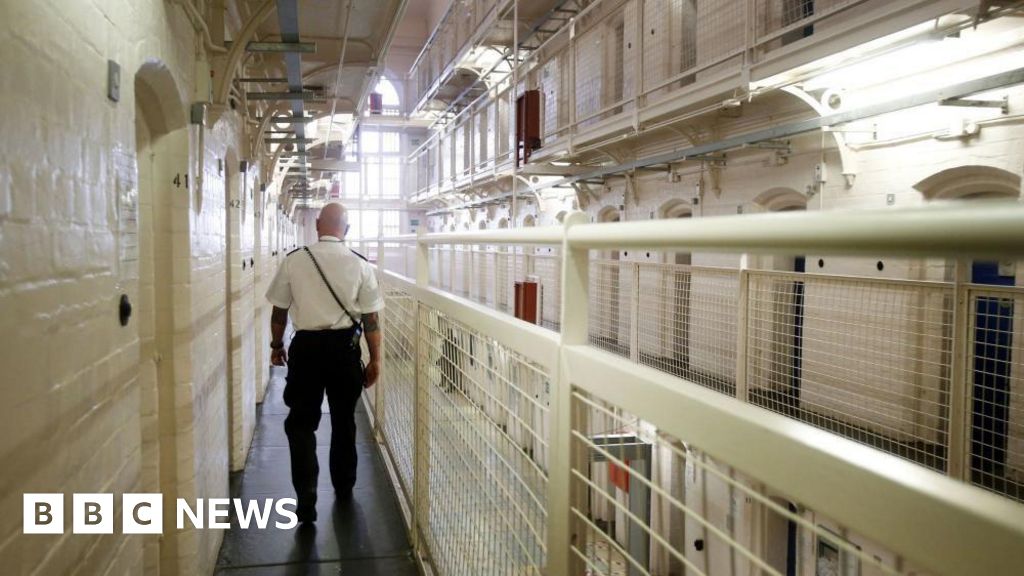
Almost 40,000 prisoners in England and Wales have been released early since September 2024, official figures show.
Their release was part of an emergency government scheme to help ease overcrowding in prisons.
The Ministry of Justice figures show 38,042 were freed under the scheme between September 2024 and June 2025.
Last year, the Labour government introduced the measure after prisons almost reached full capacity. At one point, there were about a hundred spaces remaining across the male prison estate.
The then Justice Secretary, Shabana Mahmood, said at the time: “In short if we fail to act now, we face the collapse of the criminal justice system. And a total breakdown of law and order”.
The emergency scheme allows some inmates to be released after serving 40% of their fixed term sentence, rather than the usual 50%.
It replaced a separate scheme introduced by the previous Conservative government. Under that process, 13,325 inmates were released early between October 2023 and September 2024.
Prison sources have told the BBC early releases have meant “more comings and goings” across the penal estate.
The number of recalls – when offenders are released on license but are imprisoned again for breaching their conditions – has risen significantly over the last two years.
There were 11,041 recalls to prison between April to June 2025 of offenders who had breached the conditions of their release, up from 9,782 over the same period last year. The number has almost doubled from what it was during the same period in 2023 (6,814).
Prison sources say the rise is likely to be down to the early release scheme which has seen more people being let out in a given time to create more space.
An independent investigation was launched earlier this week after migrant sex offender Hadush Kebatu was mistakenly released from prison.
Kebatu, who was set to be deported, was freed in error from HMP Chelmsford, prompting a 48-hour manhunt that ended with him being re-arrested in north London.
Responding to his mistaken release, chief inspector of prisons Charlie Taylor said inexperienced staff were being left with large caseloads of work due to a high churn of people coming through the prison system.
He said the situation had been made more difficult by the implementation of various early release schemes rolled out in recent years.
Of the 38,042 released early, 34,322 were British nationals, 3,644 were foreign nationals and 66 had no nationality recorded.
Some 10,879 were serving sentences of six months or less, with a further 5,241 serving sentences of between six and 12 months.
The age group that made up the greatest proportion of early releases was 30 to 39-year-olds, followed by 40 to 49-year-olds and 25 to 29-year-olds.
A Ministry of Justice spokesperson said: “This government inherited a prison system in crisis and took decisive action to stop our prisons from collapsing.
“Public protection is our number one priority. That is why offenders out on licence face strict conditions such as exclusion zones and being tagged, and they can be brought back to prison if they break these rules.
“We are building 14,000 prison places – with 2,500 opened since last July – and reforming sentencing so our jails are never left to run out of space again.”
On Thursday, figures revealed that the number of people dying in prisons in England and Wales has reached its highest level over a 12-month period in a century.
There were 411 deaths recorded in the year to September, up 30% from the 317 deaths in 2024, and the highest number since current data began in 2020, according to the MoJ.
Assaults on staff have also reached a new peak, with 121 assaults per 1,000 prisoners in the year to June compared to 118 in the same period last year.
Disclaimer : This story is auto aggregated by a computer programme and has not been created or edited by DOWNTHENEWS. Publisher: BBC







